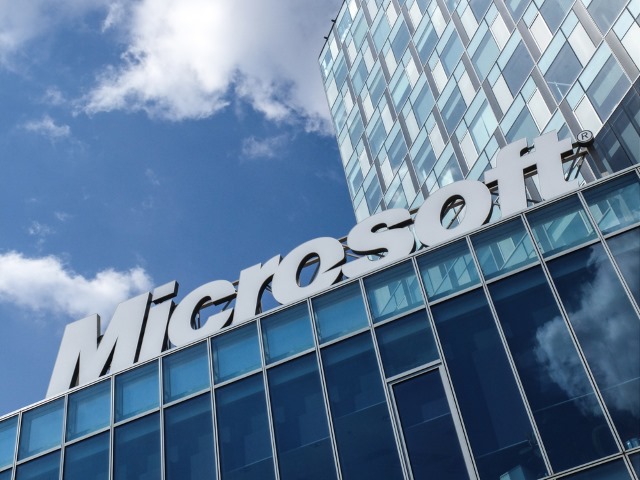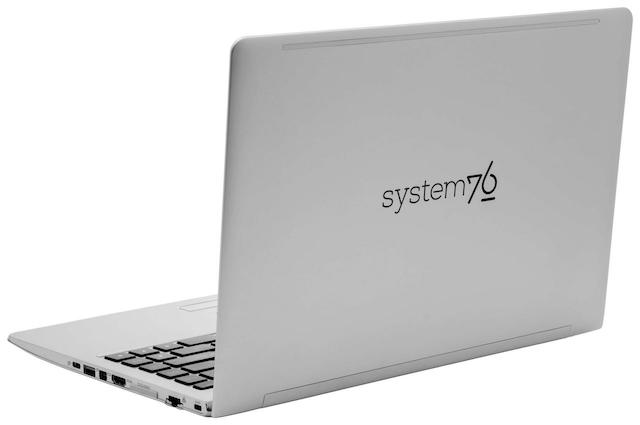
Cloud adoption and increasing threats drive enterprise encryption usage
Enterprises are accelerating their use of encryption and the strategy is being driven by business units rather than IT teams.
This is among the findings of a study into encryption habits by cyber security company Thales, based on research carried out by the Ponemon Institute. It finds that 41 percent of enterprises now have an encryption strategy in place.

Solving digital problems takes too long
Resolving incidents that impact consumers takes IT teams approximately double the amount of time customers are willing to wait for a service that isn't performing properly, according to a new study.
The research by digital operations management company PagerDuty surveyed over 300 IT personnel in development and operations as well as over 300 consumers in order to identify the challenges of meeting customer expectations.

Get WinX DVD Ripper Platinum (worth $59.95) FREE for a limited time
If you want to rip and copy any DVD disc, ISO image, or DVD folders to hard drive, computer, mobile device or digital formats, then WinX DVD Ripper Platinum is the perfect tool for the job.
It usually retails for $59.95, but for a limited time BetaNews readers can get it entirely free.

Google kills off Octane JavaScript benchmark due to 'diminishing returns and over-optimization'
Google has announced that it is to retire the Octane JavaScript benchmark. The company says that while the benchmark was useful when it was introduced back in 2012, "over-optimization" by developers means that it is far less meaningful.
Google goes as far as saying that developers were essentially cheating the system. It says that compiler optimizations needed to achieve high benchmark scores have become common and, in the real world, these optimizations translate into only very small improvements in webpage performance.

Microsoft's free cloud migration assessment sells the idea of hybrid cloud to enterprises
For enterprises, datacenters are at the heart of operations. With Azure, Microsoft has a vested interest in encouraging enterprises to move these operations to the cloud, and it is with this in mind that the company has launched a cloud migration assessment tool.
The free tool has been designed to give enterprises a way to determine whether it would make sense -- and how much it would cost -- to move to a hybrid cloud solution.
How to download old versions of Firefox
Downloading the latest version of Firefox for your PC is simple. Point your browser at the site, click "Free Download" and you’ll automatically get the latest version that matches your PC.
If you regularly need to download another build, though, life gets more complicated. You have to follow an "other platform" link, maybe select a 32 or 64-bit version, or follow yet another link to work your way through a list of languages.

Windows 10 and Xbox One to gain 'self-service refunds'
Much like Steam, Microsoft's Xbox One is to gain a "self-service refund" function. The idea is to make it easier to get a refund on games and other content that is not up to scratch, not what was expected, or simply not enjoyable.
Currently in testing with alpha users, the feature is due for a wider rollout, and will also make its way to Windows 10 users in the Windows Store. Of course, it is not going to be possible to get your money back on just anything, and there are few criteria that need to be met in order to qualify.

Toshiba is in serious trouble
Toshiba has filed its delayed financial results, warning that its survival is at stake.
The tech and construction company has reported a loss of $4.8bn (£3.84bn) for the period between April and December. However, these results have not been confirmed by the company’s auditors.

Half of millennials stream pirate content -- and see nothing wrong with it
Most people alive today have seen the evolution of the internet over the course of a couple of decades, and can remember life before it was so integral. But there is a growing proportion of the population that has never lived without internet access, and such people have developed something of a different outlook on things.
Millennials, in particular, have been able to reap the benefits of being permanently connected, and have no experience of what it was like before. One of the side-effects of the always-on, always-available nature of content is that piracy has become second nature. Not only are most millennials streaming pirate content, they do not see it as wrong -- although downloading the same content is viewed differently.

Marketers underestimate GDPR's ramifications
Awareness of the GDPR has gone up, but B2B marketers are still falling behind and underestimating the impact of the new regulation, according to a new report by the DMA.
More than a quarter of businesses (28 percent) still feel unprepared, which is just a two percent decrease, compared to earlier numbers. The number of marketers that have a "good" awareness about GDPR has risen 13 percent, to 66 percent in total, the report claims. B2B marketers, however, are at the both ends of the spectrum.

Ubuntu Linux uncertainty continues as Canonical CEO walks away
Ubuntu is in a very weird and uncertain place right now. If you have been following the Linux distribution lately, you would know that Canonical dropped some bombshell news that it was killing the Unity desktop environment, along with its tablet, phone, and convergence plans. This was shocking, as the company sunk a lot of resources into these things, and now it looks like all that time and money was wasted.
Then, Ubuntu founder Mark Shuttleworth insulted the free software community, going so far as to compare the hatred towards Mir to the gun control debate. Now today, following rumors and speculation, Canonical CEO Jane Silber announces she will be stepping down and walking away from the position -- ultimately handing the reigns to Shuttleworth. She will remain on the company's board of directors, however.

System76 all-new 'Galago Pro' Ubuntu Linux laptop now available for pre-order
If you are a Linux desktop user, you know that buying a laptop can be a pain. You undoubtedly have purchased a Windows machine, formatted the drive, and then installed your favorite distro. This sometimes works well, although you then have that Windows logo on your keyboard. Look, I'm not an anti-Microsoft Linux user, but having the Windows icon on your keyboard takes away from the overall experience.
Luckily, there are companies like System76 that sell computers pre-loaded with Linux-based operating systems (with no Windows key on the keyboard!). Its machines come with Ubuntu, but they can run any Linux distro, such as Fedora, like a champ. The company's newest offering, the all-new 'Galago Pro' laptop, looks drop-dead gorgeous. It delivers a thin and light notebook experience -- like the MacBook Pro -- but without sacrificing specifications or ports. It even has a HiDPI screen, backlit keyboard, and optional NVMe storage. Best of all? Pricing starts at $899!

Get 'Linux: Embedded Development' ebook ($63 Value) FREE for a limited time
An embedded system is a device with a computer inside that doesn't look like a computer. Washing machines, televisions, printers, cars, aircraft, and robots are all controlled by a computer of some sort, and in some cases, more than one. As these devices become more complex, and as our expectations of the things that we can do with them expand, the need for a powerful operating system to control them grows.
The Linux: Embedded Development ebook from Packt Publishing will tell you everything you need to know to leverage the power of Linux to develop captivating and powerful embedded Linux projects. It usually retails for $63 but for a limited time you can get it entirely free.

Public clouds not for core apps? Businesses challenging this preconception
With its greater performance, reliability, and scalability, it is little surprise that we’re seeing a boom in the deployment of public cloud services. According to a recent survey by Gartner, companies consider public cloud to be both the most disruptive and most impactful issue facing them in 2017. In fact, IDC predicts that the worldwide public cloud services spending forecast will double to more than $141 billion by 2019.
For most organizations, this first venture into public cloud has been in deploying new applications to engage with their customers (systems of engagement). Now, having successfully used public cloud platforms for these new applications, a growing number of application development and delivery leaders want to bring the same benefits of fast delivery, high security, and cost flexibility to core business applications.

Delivery firm Hermes trials self-driving robots in London
Amazon has been talking about using drones as a way to deliver parcels to customers for some time, but Hermes has a more down to earth solution it’s about to start trialing in London -- self driving robots.
In partnership with Starship Technologies, the courier firm will soon trial a number of parcel collections in the London borough of Southwark. This follows on from a successful pilot project which saw Hermes Germany test parcel delivery by robot in the Ottensen, Volksdorf and Grindel suburbs of Hamburg.



